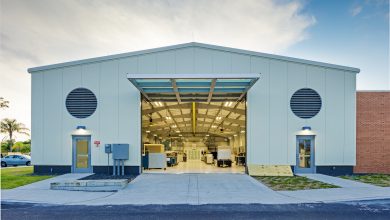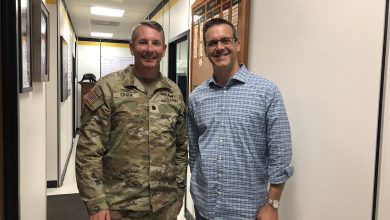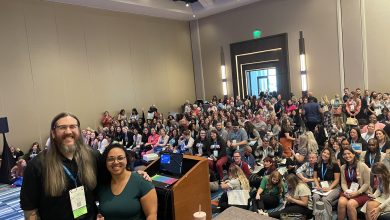On the Beat with a British Bobby
Before each shift, Paul Robertson ’94 puts on his uniform—black cargo trousers, black shirt tucked under a black stab vest, handheld radio affixed near his left shoulder and a rig belt adorned with handcuffs, baton and pepper spray. Atop his head rests the traditional Custodian helmet (but only when he’s on foot patrol, which is a rarity). Noticeably absent is a firearm.
Robertson is a police constable stationed at Bognor Regis, West Sussex, two hours south of London, along the coast of the English Channel. Unlike a U.S. police officer, he does not carry a gun. In fact, though trained for crowd control, demonstration situations and CBRN (chemical/biological/radioactive/nuclear) incidents, Robertson has never received firearms training.
“The main difference between police in England and police in the U.S. is obviously the fact that we are not armed as standard,” explains Robertson. “We have armed units, but the ordinary Bobby carries an extendable baton and (in Sussex) pepper spray when out on patrol.”
On the beat in his rural, seaside community, Robertson is part of the Neighbourhood Response Team, which deals with emergency situations as they are called in to 999 (the British equivalent of 911). Anything from a noise complaint to an assault, Robertson responds to the scene in his patrol car, which is not the famed black and white “panda” car, but a modern general patrol vehicle, or GP, that is silver with blue and yellow reflective decals.
Robertson has served on the force for eight years, and in that time, calls have spanned the mundane to the morose—a typical disorderly drunk to a badly beaten man “set alight.” Common issues include drugs, “drink-related anti-social behaviour” and theft.
“The theft increase is a direct result of what is happening with finances, jobs, taxes, and the like in England. People can’t or won’t work, but still want the good things in life, so they feel as if they are entitled to take them from wherever they can,” he laments.
Like the U.S., suspects are innocent until proven guilty. However, after being arrested on suspicion of a crime, British defendants are photographed and fingerprinted, and also have their DNA taken.
DNA sampling upon arrest is growing, but not universal in the U.S. The practice is law in 26 states, yet several legal battles wage questioning its constitutionality.
Outside of the day to day, Robertson has participated on some high-profile assignments in recent years. In the wake of the 2011 London riots, he spent two days on patrol in the north/northeast area of the city, where fortunately, “nothing of note happened.” In July, he assisted at one of the change-over points as the Olympic torch made its way through the countryside on its path to the London games.
“I actually got to see and touch the torch,” he says. “I have not washed my hand since!”
With his unusual application of an applied mathematics degree, Robertson jokes, “I’m not quite sure what inspired me to become a copper as I didn’t have family or close friends who were emergency service personnel. I just failed to grow out of the ‘I want to be a policeman/fireman/train driver’ stage.”
And, though he’s not analyzing complex equations (“The only problem solving I really have to do is decide whether I am going to knock the door in or break a window!”), he is protecting and serving his community.
“The most rewarding part of the job is a ‘thank you’ from a victim of crime when we are able to quickly catch the person responsible and seeing their face light up with gratitude and relief. Obviously the worse the incident or more vulnerable the victim, the greater the feeling,” he says.
At the end of a shift, Robertson’s favorite duty is getting back home to his family—wife Laurie (Hockridge) ’94, a physical education teacher at the local girls high school, and their two sons, Frankie, 6, and Harvie, 4.
“Being a copper is both an exciting and an exhausting job where you never know what the next call will bring,” he says. “I’m proud to serve my community and help make the streets a safer place for my family.”
Christena Callahan







